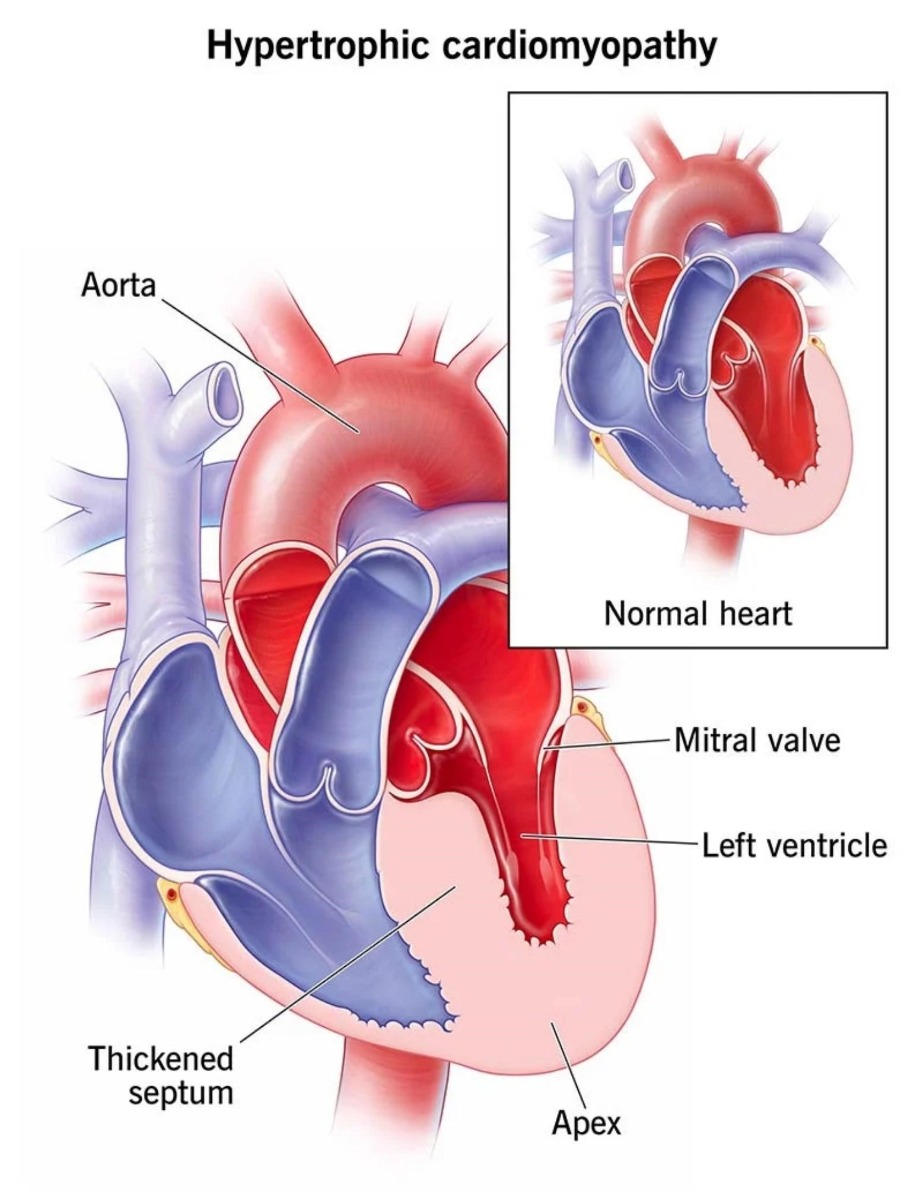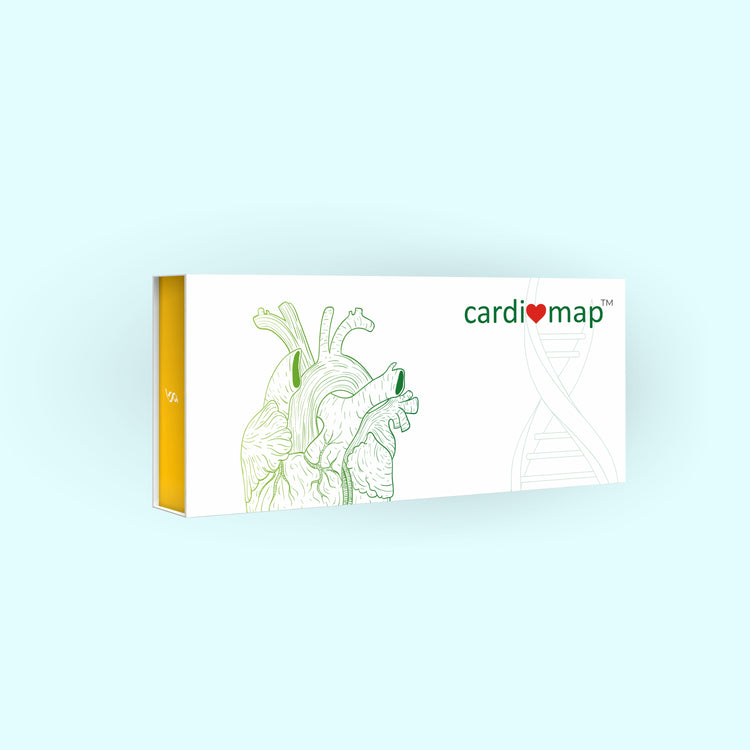How Can You Prevent Hypertrophic Cardiomyopathy?
Aug 09, 2023
3146 Views
This rare heart condition can be passed down from parents and run through families for generations
A 56-year old woman from Kerala discovered that she has hypertrophic cardiomyopathy. Once she was confirmed with HCM, doctors advised tests for other family members and found that three generation of her family, from both paternal and maternal side (around 16 persons) had abnormal genome and five others in the family had died before the age of 25.
So, what is hypertrophic cardiomyopathy?
Hypertrophic cardiomyopathy (HCM) is a complex genetic disorder that affects the structure and function of the heart muscle. It is characterized by an abnormal thickening of the heart muscle, particularly in the left ventricle, which can lead to difficulty in pumping blood and other serious complications.

Causes of hypertrophic cardiomyopathy and what genes are associated with it
Hypertrophic cardiomyopathy (HCM) is caused by mutations in one or more genes that regulate the growth and function of cardiac muscle cells. These mutations can cause the muscle cells to grow larger than normal, leading to the thickening of the heart muscle.
The most common genes associated with HCM are MYH7 and MYBPC3, which provide instructions for making proteins that are important for the normal functioning of cardiac muscle cells. Other genes, such as TNNT2, TNNI3, TPM1, and MYL2, have also been linked to the development of HCM.
Hypertrophic cardiomyopathy (HCM) is inherited in an autosomal dominant pattern, meaning if one parent has the gene, that disease-causing gene can be passed to the next generation. Each child of an affected parent has a 50% chance of inheriting the mutation and developing HCM. However, in some cases, HCM can occur spontaneously due to new mutations that arise during the formation of sperm or egg cells
Symptoms of hypertrophic cardiomyopathy
Some people may experience shortness of breath, chest pain, fainting, heart palpitations, and fatigue. Others may have no symptoms at all. The severity of symptoms and the progression of the disease can also vary widely from person to person.
Dr Sharath Reddy Annam Senior Consultant Interventional Cardiologist, Medicover Hospitals) says:
“Hypertrophic cardiomyopathy is genetic and happens when the heart walls thicken and prevent blood from passing through the heart. Unmanaged high blood pressure, ageing, diabetes, or thyroid disease can lead to it. Or sometimes, there is also no particular cause behind it. Arrhythmogenic right ventricular dysplasia (ARVD) is a rare type of cardiomyopathy but can lead to death in athletes. This causes abnormal heart rhythms and improper functioning of the right ventricle.”

Diagnosis of hypertrophic cardiomyopathy
Diagnosis of HCM typically involves a physical exam, imaging tests such as echocardiography, and genetic testing to identify the underlying mutation. Echocardiography is a type of ultrasound that uses sound waves to create images of the heart. This test can help doctors visualize the thickness of the heart muscle and identify any abnormalities in its structure or function. Genetic testing can be used to identify the specific mutation responsible for HCM in some cases.
Treatment for hypertrophic cardiomyopathy
Treatment options for HCM may include medications to manage symptoms and prevent complications, lifestyle modifications such as avoiding strenuous exercise, and in severe cases, surgical procedures such as septal myectomy or septal ablation. Medications such as beta-blockers, calcium channel blockers, and anti-arrhythmic drugs may be used to manage symptoms such as chest pain, palpitations, and irregular heart rhythms. In some cases, implantable cardioverter-defibrillators (ICDs) may be recommended to prevent sudden cardiac death.
Lifestyle modifications can also play an important role in managing HCM. Avoiding strenuous exercise and participating in low-impact activities such as walking, swimming, or yoga can help prevent complications such as arrhythmias and heart failure. Maintaining a healthy weight, managing stress, and quitting smoking can also help improve overall cardiovascular health.
In severe cases of HCM, surgical procedures such as septal myectomy or septal ablation may be recommended. Septal myectomy involves removing a portion of the thickened heart muscle to improve blood flow and relieve symptoms. Septal ablation involves injecting alcohol into a small artery in the heart to selectively destroy a portion of the thickened muscle. Both procedures can be highly effective in reducing symptoms and improving quality of life.
Importance of regular checkup and genetic counseling
It is important for people with HCM to receive regular monitoring and care from a cardiologist with expertise in the condition. Regular check-ups and imaging tests can help identify any changes in the heart muscle and monitor for complications such as arrhythmias or heart failure.
Genetic counseling may also be recommended for people with HCM and their families, to help identify the specific mutation responsible for the condition and provide information about the risks of passing the mutation on to future generations.
How can MapmyGenome™ help you?
Hypertrophic cardiomyopathy is now a treatable form of heart disease and patients are able to live a normal, long life. The important thing is to find out if you have HCM as early as possible, and one way to do that is by doing a genetic test. Being aware of your family history, especially related to heart conditions is important. If family members have HCM, you may want to consider genetic testing. Genetic testing can help determine if you carry genes that increase your risk of developing the disease.
MapmyGenome™ has two preventive genomic tests that can help you understand your heart health better: Genomepatri™ and Cardiomap™. Genomepatri looks at your DNA and predicts your genetic risk for more than 100 conditions that includes cardiovascular diseases like hypertropic cardiomyopathy,cancers, traits, drug responses, inherited conditions, and carrier statuses.
Cardiomap™ focuses on your risk for common cardiovascular diseases, such as heart attack, stroke, high blood pressure, high cholesterol, and diabetes. Both tests are simple and easy to do: you just need to provide a saliva sample and send it to Mapmygenome. We will analyze your DNA and give you a detailed report with your results and recommendations.
You can also get genetic counseling from Mapmygenome to help you understand your report better and make informed decisions about your health and for your family’s health.


